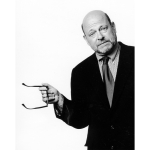Once in late summer,
the road already deep in twilight,
mixing colors with some straggly
wildflowers, I came to a village
I did not know was there
until
I stepped into its narrow street.
Admiring the prim, white houses
nestled among their veteran,
lofty trees,
I found myself in
a tiny square with a little dawdl-
ing fountain and a rickety tower,
its owlish clock absentmindedly
counting minutes now and then.
And in the fountain the face
of morning seemed to linger as
though searching. The air was fresh,
breathing out the fragrances
of a recent shower.
I luxuriated
in my senses, like meeting
unexpectedly a pack of friends
years and years unthought of, laden
with all kinds of gifts.
Then
as I stopped to knock at the door
of a house that had seemed occupied
with happy noises, a silence
fell on it,
the light went out—
and was it instant eyes like flakes,
ten thousand, thousand flakes,
and all unknowing, flurried
round me?
Wherever I turned
I was met by the unmistakable
accusation, “Stranger!” I, who had,
I thought, begun here and who now
required lodgings
for the night,
was denied and from the start.




















Comment form: